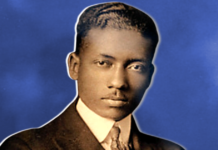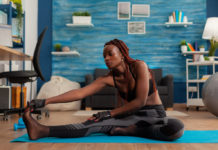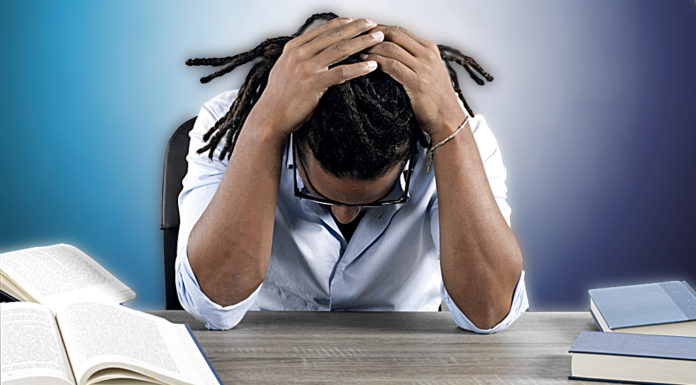Spiritual people believe that the challenges and road blocks placed in our path often are put there to have us make the right decisions in life. My road to being a public school teacher had a few stumbles and bumps, but I made it here.
Proudly, I’m a graduate of Metropolitan State University’s Urban Teaching program. It feels amazing to say that. I made it. My dreams of doing something meaningful for young people, like others did for me, is happening.
As a black mom who knows what hard times look like I feel good about my chances of making connections with students, especially those who come from where I do.
I was homeless – in cold Minnesota – while completing my education. At one point I was facing deportation (long story). I was trying to make a dollar out of 15 cents because I was too proud to let anyone know what was going on. I was lost. Through it all I focused on one goal: teaching. ![]()
If you listen to the national talk about the need for black teachers, you might think the path to getting us before the youth who need us in classrooms would be a no-brainer.
It aint.
I was supposed to start student teaching in the spring of 2014 but I had to put it off for a full year because I couldn’t afford to teach 12 weeks for free. Funny thing about money, it’s just not there when you need it most.
To be honest, I was also concerned about things I saw in my district’s schools and worried about my fitting in there. My professors clearly steered me to teach in traditional public schools (I suspect they had placement goals to meet), but I was apprehensive. It didn’t feel right. I know teachers in the district, I was a student in those schools, and the combination of experience and word of mouth made me nervous.
What happened next I say was divine intervention.
I got sick on my first day so I didn’t start. That same weekend, I went to a community forum about police accountability. It was the first time I heard Nekima Levy Pounds speak and it put me on fire. As our local NAACP president and leader within the Black Lives Matter movement I saw what it looked like to be a black woman who is all in on the fight for justice.
Towards the end of the forum a young lady, I presumed a high school student, asked some very difficult questions of the panel. In my head, I was like, those were some damn good questions. When the forum was done she approached the panel with her pad and pen and grilled them. I marveled at her power and confidence. All youth should feel that secure in themselves.
Most people in the room were older, so I wanted to know what brought her to that event. She told me she was personally interested in police accountability, and her school offered credit for attending these types of forums.
What? I thought not only was this young lady smart and articulate, but her school sounded awesome.
She was so impressive, I had to know more. Where could I find a place to get into the lives of more young people like her. The answer: the High School For Recording Arts, a music themed high school in St. Paul that works with students who have been pushed out of traditional schools, or left behind for a variety of reasons.
That one encounter clarified my path. After contacting HSRA and having a great conversation with the lead social studies teacher there, I knew it was where I would student teach.
My Urban Teacher professors had been supportive of me in most things, but the decision to teach at HSRA wasn’t one of them. Though HSRA is a school for and by members of marginalized communities, it’s a charter school. People in traditional systems, from kindergarten teachers all the way to college professors, have a bias against these schools that borders on religious. They can’t see what I see, which is an environment to teach that is tailored for the kids I care about, without the strings and red tape I’ve seen in our district.
I’ve learned a few things in this process that go beyond just the basic professional skills needed to teach, things that are specific to me as a black woman who wants to teach forgotten children.
First, the process of becoming a teacher favors the middle class. It’s expensive. Nobody has time to be incurring debt and teaching for free when their broke. We shouldn’t pretend lack of money means lack of talent or value to the teaching profession.
Second, regular public schools need to reckon with the fact that many of us had bad experiences with them. It doesn’t make us want to return as employees when we remember student experiences of discrimination and low expectations.
And, last. Just as there are alternative public schools for students that need them, some of us want to be alternative public school teachers. Some of us still have the hood in us and we don’t want to be molded by professors and system professionals into good little soldiers for mostly white school districts where teachers – especially the black ones – have very little say in how we work with kids who struggle like we did.
All of it gets harder when the cost of college continues to rise. Mounting college debt hits black college grads more than others. States play games with teacher certification practices. And the traditional education establishment wages a crazy war on alternative schools that serve kids most in need (schools that are attractive to teachers like me who want to teach for justice, not for a profession).
My biggest hope is that God opens up more pathways for non-traditional black teachers in the way it happened for me. Given all barriers I faced coming up and getting through, it’s time to stop talking about the need for more black teachers and start making the systems work to get us in the classroom.
Khulia Pringle is a parent, educator, education activist, and community organizer working in St. Paul, Minnesota.











[…] I joined SFER I was in a teacher education program and also dealing with school issues in my own home. I was beyond frustrated with the St. Paul […]